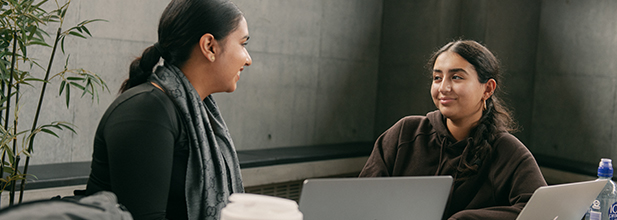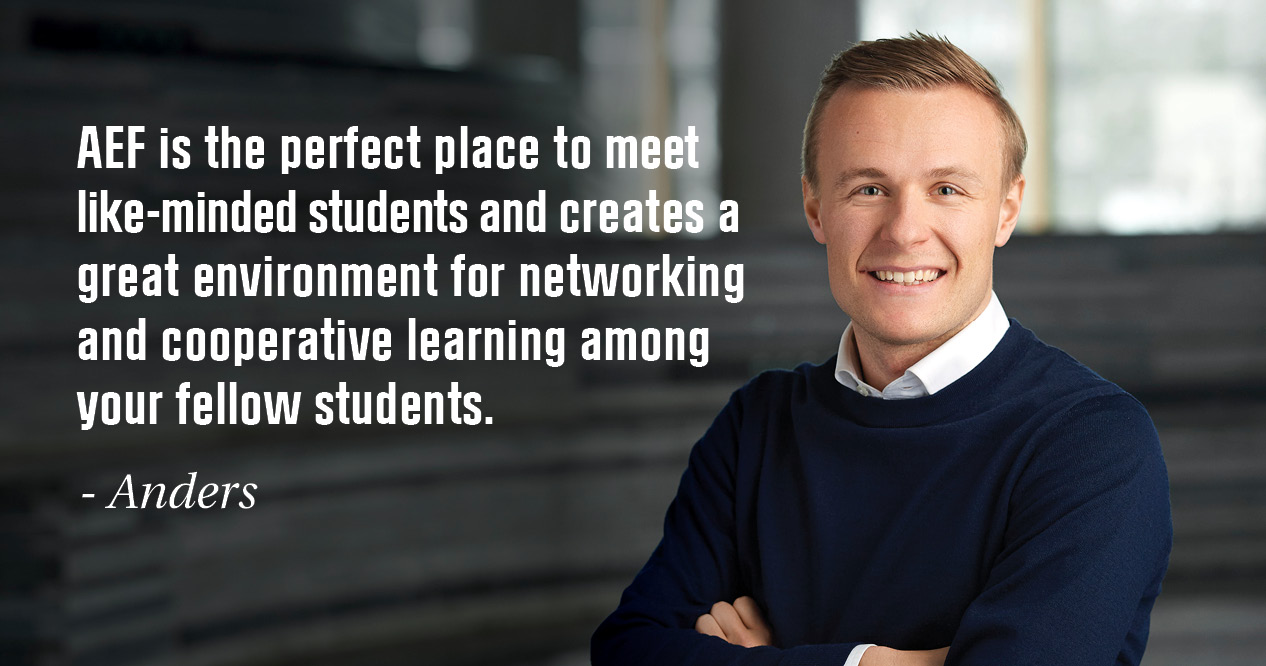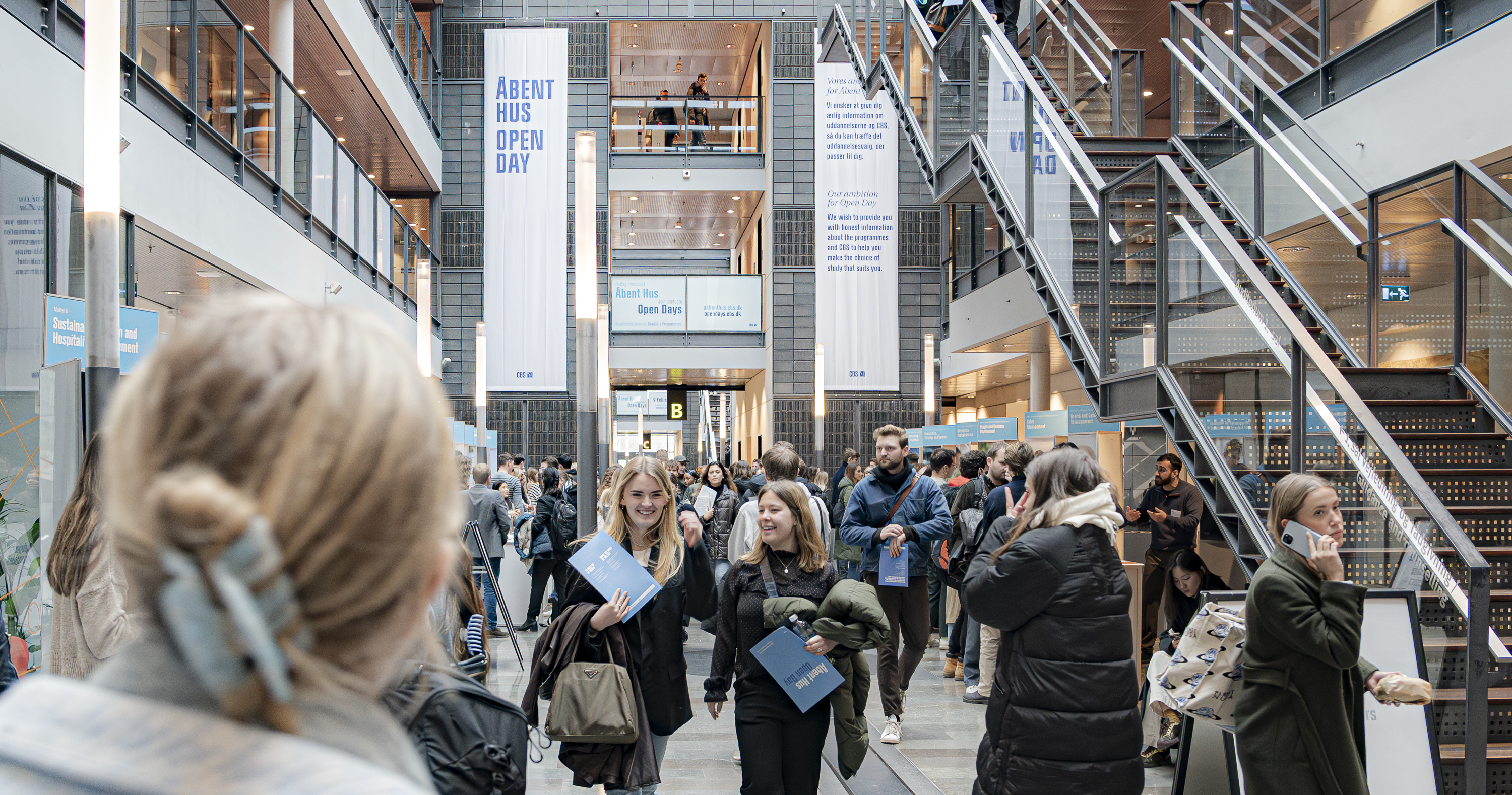Additionally, you will be able to work on solving and preventing incentive problems created by these decisions among or between different stakeholders and company management.
Financial Analysis
You will learn how to influence the competitive situation of firms and how to protect your firm from the risk connected with market uncertainties. You will also come to understand how theories and models in finance and financial instruments can be applied to make investment decisions and to create a solid financial foundation for your company’s endeavors.
Quantitative Analytical Tools
The ability to analyse financial and economic data is important for almost any type of corporate decision.
Through the theories and models of econometrics you will learn not only how to manage data and perform a statistical analysis, but also more importantly how to interpret the outcome and be critical of the methods used and conclusions drawn by others. Acquiring these skills will for instance allow you to identify potential financial problems and suggest the proper solution. You will also be able to construct and test hypotheses, and on that background analyse likely outcomes of making an investment, entering a new market, or selling off part of the company . In doing so, you will provide the company with valuable information for decision making.

During the programme, you have various opportunities to create your own academic profile.
Electives
On the 3rd semester, you can choose to study courses of your specific interest. CBS offers a large number of electives within a wide range of topics. You can also choose to take electives at other Danish universities. The electives you choose have to be relevant for your programme.
See the current selection of CBS electives on Single courses and electives - Master
Minor
On the 3rd semester, you can also choose to study a so-called minor. A minor is a package of electives within a specific academic area. Typically, it consists of 3 courses. By taking a minor, you strengthen your competences within a specific area of interest, and you can use it to qualify for specific jobs or industries.
See the current selection of CBS minors on Minors
Exchange
Many students choose to go on exchange on their 3rd semester; usually at one of CBS’ more than 300 partner universities. When you go on exchange through CBS, you do not have to pay for the teaching at the foreign university (with a few exceptions), and you can bring your SU (student grant).
Find a list of all CBS partner universities here
CEMS - Master in International Management programme
On Applied Economics and Finance, you can apply for the CEMS - Master in International Management programme. CEMS MIM is a double degree programme, which gives you the opportunity to add a second degree in international management to your CBS degree. This means that you will get both the MSc degree and the CEMS in International Management degree.
CEMS is a 1-year programme, which you study in combination with your CBS degree in your 3rd and 4th semester. Part of it takes place at one of the other CEMS universities abroad.
Learn more about CEMS / Master in International Management
Master's thesis
Your 2nd year is completed with a master's thesis. You choose the topic you want to write about, which allows you to focus on a specific topic of your interest. Typically, you write your master's thesis with a fellow student.
Theory and application
The programme aims to strike a balance between theory and application. During the first semester, you will be introduced to many new areas and economic concepts at a high academic level. The emphasis is on understanding the theory and models, which are then applied to practical examples.
Strong interest in economics and finance
To be a good match for this programme, you should have a strong interest in economics and finance and aim to work with the applications of the models and theories covered in the programme. For this reason, it might be a good idea to be up to speed on your statistics and mathematics knowledge, as these skills will be used from the very beginning of the programme.
Recommended reading before study start
Most Danish students enter the programme with a bachelor’s degree in economics and/or business administration, typically from CBS. Accordingly, the corresponding level is implied entry knowledge.
For students with a different background, such as international students, we recommend that you have the following knowledge before starting your studies:
- Economics: You should be familiar with the content of basic courses in microeconomics and macroeconomics. The following books indicate the level of recommended knowledge and cover the introductory level regarding consumption theory, theory of the firm, welfare theory, short and long run equilibrium in the macro economy:
- Frank, Robert H., Microeconomics and Behaviour, McGraw-Hill
- Mankiw, M. Gregory, Macroeconomics, Worth
- Blanchard, Olivier, Macroeconomics, Prentice Hall.
- Finance: You should have entry-level knowledge indicated by a title such as:
- Ross, Westerfield & Jordan, Fundamentals of corporate finance, Irwin.
- Mathematics: Some level of mathematics is recommended for all courses. Especially, it is valuable to master some basic rules of optimization (local and global maxima/minima).
Studying in English
If you do not have a bachelor’s degree taught in English, we recommend that you read more about what to consider before applying for an English taught programme.
Read more about Teaching and literature in English on Teaching and working methods.
Many students
With around 120 students enrolled each year, this programme is one of the largest. With that many students it is difficult to get to know everyone, but students often tend to form smaller groups based on shared levels of ambition, areas of interest or background. This allows for more diversified groups of students, where some are very active and social, some work a lot and keep to themselves, and some are very keen on internationalization and mixes in with everyone.
Ambitious and active students
Students are generally ambitious and active, both in and outside the classroom, and many have student jobs that take up some of their spare time.
International environment
The programme is very internationally oriented, both in academic content and in the composition of your fellow students. Approximately half of the students come from outside of Denmark - mostly from the Nordic or European countries.
Student life at CBS
Studying at CBS is much more than just preparing for and going to classes.
At CBS, there are more than 20,000 students with different backgrounds and nationalities. Teamwork is an essential part of studying at CBS both in classes and in extracurricular activities.
With more than 100 student organisations, you also have plenty of opportunities to engage and connect with students across programmes and classes.
Learn more about the vibrant student life at CBS, the student organisations, and the international environment on Student life
For internationals
If you are an international student, we have gathered a lot of information about what it is like to be an international student at CBS and how you can prepare for life in Denmark.
Read more on For internationals
Teaching
The teaching mostly consist of lectures combined with exercise classes. For the lectures all students are together, and for the exercises the class is usually divided into three groups to make better room for questions and discussions. In some courses, presentations by smaller groups of students are used, and guest lecturers, covering special areas, are invited to give perspectives from a relevant company or industry.
Read more on Teaching and working methods
Exams
The typical exam form in the programme is a four hour written exam. In the 2nd semester there is an extended group business project, where you go more in depth with a relevant topic and problem of your choice.
Read more on Exams at CBS
Time consumption
You should know that it is demanding to study in a graduate programme, and both the curriculum and workload is significantly higher than at bachelor level.
If you are studying on a full-time graduate programme, you should expect spending approximately 37 hours on average on your studies each week. The workload will vary during the year.
The time leading up to assignment submissions and exams can be hectic, and you can easily work more than 40 hours a week in this period. Preparing for oral exams can be especially time consuming, because you have to be able to explain and discuss the covered concepts and theories and learn things by heart.
Read more on Teaching and working methods
Student job
Most programmes are quite flexible in terms of combining studies with a student job. Most students work a maximum of 15 hours a week in order to have sufficient time for their studies.
Studying in Denmark - for internationals
If this is your first time studying in Denmark, you may find teaching and exam formats, the grading scale and the academic calendar very different from what you are used to.
Read about everything you need to know as an international student studying at CBS on For internationals > Academic information
What gets you the job?
This programme will give you a strong understanding of finance and economics which can be applied to any job where the ability to raise, allocate and manage finances is central. You will also learn to perform quantitative analysis, use mathematical tools and econometric models for empirical data analysis.
Career opportunities
The majority of graduates find employment in financial institutions. For instance as financial analysts working in a mutual or pension fund, performing evaluations of market developments and advising on how best to make investments.
Some will work in consulting. As a consultant you can help companies tackle various problems. For instance if a company is not performing well in a certain market and needs to find out why. Others will find work in larger companies within corporate finance where you could help make analyses for investments and financial decisions, and find ways of maximising shareholder value.
But the financial and quantitative skills acquired in the AEF programme can also lead to jobs in a broad range of other areas, like public institutions or international organisations.
Competence profile
In the competence profile you can read more about the purpose of the programme and the competencies you achieve in the programme:
Competence profile for MSc in Economics and Finance - Apllied Economics and Finance










